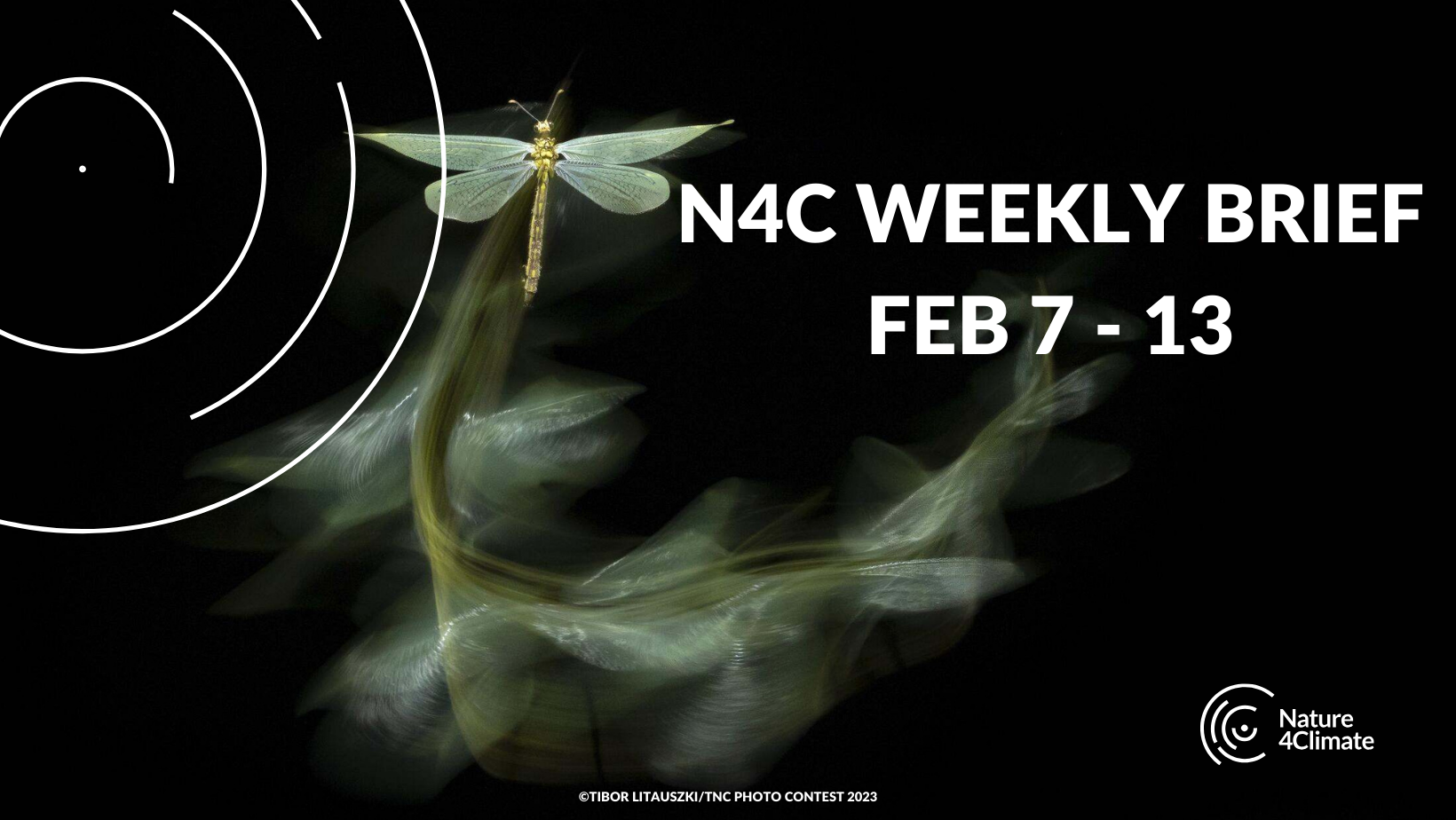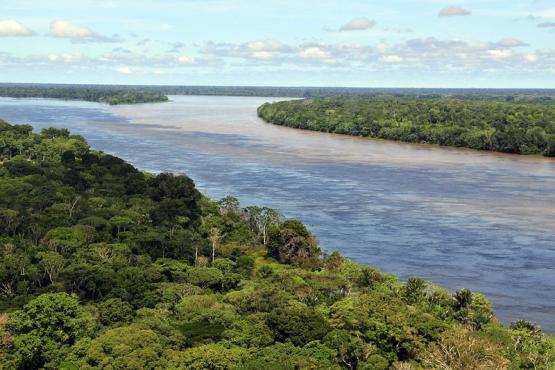
FEATURED NEWS
Analysis: Why the next two years will make or break battle to rescue tropical forests
Reuters, Terry Slavin, 6 February
Reuters analyzes the state of forest conservation efforts with leading environmental activists, commodity producers and investors to assess how the fight to protect forests will fare in the coming years. The article focuses specifically on deforestation in the Brazilian Amazon rainforest and Cerrado biomes, two critical carbon sinks for the world. While deforestation has decreased rapidly in the Amazon rainforest, nature loss has accelerated in the Cerrado. Expansion of agricultural production for cattle and soy are the major culprits in nature loss in Brazil and the focus of many stakeholders’ work to realign financial incentives across global value chains to invest protecting nature. Quantum Commodity Intelligence reports that deforestation in the Brazilian Amazon hit its lowest point in the last three years, despite an historic drought across Brazil. Sentient explores how Brazil’s President Lula outperforms his predecessor in protecting nature and the challenges he faces in ending nature loss in his nation fast enough to meet climate targets.
Not all carbon credits are created equal
Euronews Green, Maria Mendiluce, 9 February
Euronews Green carries a commentary from CEO of the We Mean Business Coalition Maria Mendiluce calling for continued investment in proven high-integrity carbon credits as the market experiences growing pains to mature new types of projects and methodologies. The Kathmandu Post shares a commentary covering the need to evolve Nepal’s community forestry conservation strategy and implement new partnerships in REDD+ programs to finance the efforts of communities leading the effort to protect the nation’s natural resources. Ed Hewitt, Natural Climate Solutions Lead at Respira International Ltd, pens a LinkedIn article highlighting how carbon credits purchased by pop start Taylor Swift can provide lessons to other carbon credit buyers. ESG Investor reports that more than 50 asset managers globally are providing natural capital-focused strategies to meet asset owner demand, according to a study published by independent global investment consultancy finance.
Responsible investor group targets 40 major companies to raise engagement on biodiversity
Carbon Pulse, Sergio Colombo, 8 February
Carbon Pulse shares that Principles for Responsible Investment (PRI) announced the first batch of 40 companies that its members will engage with through Spring 2024 on their impacts and dependencies on the natural world; through their business operations, their supply chains, and their engagement with policy makers. Currently, 129 PRI signatories, representing a combined estimated USD 9 trillion Assets Under Management, have publicly signalled their support for the initiative. These signatories will raise pressure on the 40 companies to disclose their nature-related impacts and help shape better environmental policies. Eco-Business carries a commentary from the CEO of the Roundtable on Sustainable Palm Oil calling upon investors to step up their efforts working with palm oil companies to end deforestation. ESG Clarity shares a commentary from FAIRR Initiative experts warning investors to vote down JBS’ proposed US stock exchange listing which would limit investor voting rights to address the company’s problematic issues with biodiversity and nature loss.
Ecuador’s new president tries to wriggle out of oil drilling referendum
Climate Home News, Doménica Montaño, 8 February
Climate Home News covers growing concerns that Ecuadorian President Daniel Noboa will seek to circumvent the last year’s referendum to end oil drilling in the Amazon rainforest’s Yasuní park where many Indigenous communities live. Since the vote on the referendum, Ecuador has gone through a political and social crisis due to a rise in gang violence, prompting the President to voice that the nation is in a different situation that may require the additional funds that could be received by opening up oil drilling. On February 1, the indigenous Amazon Waorani Nationality declared themselves in a ‘territorial emergency’ and demanded that the government respects the referendum. Climate Home News also reports that the expansion of mining operations for nickel in Indonesia, the world’s largest nickel producer, is threatening the rights of Indigenous peoples. Specifically, in Southeast Sulawesi, the construction of a nickel industrial complex on the Indigenous Mopute people’s traditional land has sparked conflict.
Q&A: European Commission calls for 90% cut in EU emissions by 2040
Carbon Brief, Molly Lempriere, Josh Gabbatiss and Daisy Dunne, 7 February
Carbon Brief reports on the release of the European Commission’s new climate change roadmap that calls for a 90 percent cut in EU emissions by 2040. The roadmap relies on significant contributions from biomass energy with requirements that emissions will be captured, and carbon dioxide removal from both “land-based” solutions and new technologies concerning some observers. Climate ministers from EU member states will initially be tasked with considering the target and the wider package of climate measures, starting at the next Council of the EU environment meeting on 25 March and followed by another on 17 June. Climate Home News reports that the roadmap cut out significant climate contributions from emissions reductions in the EU’s agricultural sector entirely. Previous iterations of the roadmap had language that was cut out of the final version that claimed the agricultural sector could cut its emissions by at least 20% by 2040, suggested carbon pricing for the sector, and supported reducing demand for meat with a switch to other protein sources.
SPOTLIGHT – Nature-based solutions receive only 37% of the financing needed to reach global climate goals
This article was originally published on November 20th, 2023, and updated with new data on February 13th, 2024, following the release of the UNEP State of Finance for Nature 2023 report. The update reflects a change in the percentage of public finance allocated to Nature-based Solutions, increasing from 31% to 37%.
SPOTLIGHT – UNEP/FAO World Restoration Flagships
UNEP and the FAO have named seven initiatives from Africa, Latin America, the Mediterranean, and South Asia as UN World Restoration Flagships. These initiatives include ecosystems at the tipping point of outright degradation resulting from wildfires, drought, deforestation, and pollution. They are now eligible for technical and financial UN support.
COP28 – NATURE TALKS
FOR YOUR INFORMATION
Green Finance Institute shares a briefing paper that calls to attention five high and immediate priorities for England’s government to address to ensure the success of the newly launched Biodiversity Net Gain (BNG) market.
Nature Risk Commission shares a report on how businesses and the public sector can work more systematically with nature risk.
Carbon Market Institute releases a market brief on the international carbon market.
SBTi explains its updates to its Forest, Land and Agriculture Guidance, which will increase accessibility, transparency and understanding of the target-setting criteria and process.
UNEP reports on the State of the World’s Migratory Species report launched by the Convention on the Conservation of Migratory Species of Wild Animals (CMS), which provides a global overview of the conservation status and population trends of migratory animals, combined with the latest information on their main threats and successful actions to save them.
GreenBiz highlights a report sponsored by GHD sharing insights and expertise on preparing the market, public, and infrastructure for hydrogen blending.
Agri Investor publishes its 2024 Impact Investing report, which focuses on how impact investors are trying to make a positive difference in food systems through sustainability and biodiversity.
S&P Global shares insights on key sustainability trends in 2024, expecting that companies will take steps to measure and manage material sustainability issues, such as plastic, throughout their value chains under some countries’ mandatory disclosure standards.
IUCN shares its2023 annual report for the International Union for Conservation of Nature, focusing on the West Asia Region.
N4C releases an update on global financing for nature-based solutions following the release of the UNEP State of Finance for Nature 2023 report.
UNEP, along with FAO, names seven initiatives from Africa, Latin America, the Mediterranean, and South Asia as UN World Restoration Flagships. These initiatives include ecosystems at the tipping point of outright degradation resulting from wildfires, drought, deforestation, and pollution, which are now eligible for technical and financial UN support.
Birdlife International shares its efforts at the Convention of Migratory Species Convening of the Parties (CMS COP14) to protect bird migration routes.
WWF and several other NGOs issue a letter to President Biden calling for him to institute a whole-of-government approach at the federal level to advance ambitious solutions to plastic pollution, both in the U.S. and internationally.
CASE STUDY
N4C is compiling an index of NBS case studies, together with an interactive map, to highlight action on the ground. Each week, we will be choosing a case study to present, to help give concrete examples of work being done to bring NBS theory into practice.
Vertentes Project
WHERE: CERRADO BIOME, BRAZIL
TYPE OF NCS SOLUTION: MANAGE
Cattle grazing in the savanna landscape of the Cerrado biome has led to significant land degradation and loss of native vegetation. This project aims to sustainably manage the landscape by restoring degraded land and conserving biodiversity. Project activities focus on the development of integrated land management systems, restoration of natural habitats, and capacity building.
NUMBER OF THE WEEK – 20 MtCO2e/yr
The emissions that could be sequestered annually by 2050 if Ecuador met its potential to reforest land that has been cleared of native vegetation. See more details on the potential for natural climate solutions in N4C’s naturebase.
GOOD NEWS
Globally representative evidence on the actual and perceived support for climate action
Through a representative survey across 125 countries, interviewing nearly 130,000 individuals, researchers found that there is widespread support for climate action. 69% of the global population expresses a willingness to contribute 1% of their personal income, 86% endorse pro-climate social norms, and 89% demand intensified political action. Countries facing heightened vulnerability to climate change show a particularly high willingness to contribute. However, individuals around the globe systematically underestimate the willingness of their fellow citizens to act. Therefore, raising awareness about the broad global support for climate action is critically important in promoting a unified response to climate change.
